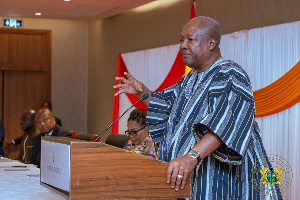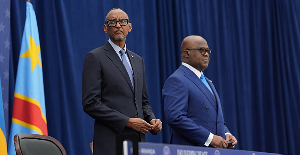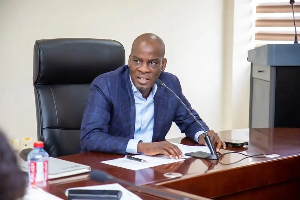Ask to know: it’s your right says the Coalition for the Right to Information (RTI)
In view of the importance of information to every citizen as indicated under the constitution of Ghana and some universal laws September 28th every year, has been declared as the Right to Know day. In the following official statement the Coalition for the Right To Information has thrown light on the need to promote access to information by government and men and women in public offices to aid accountability transparency and good governance: how read on
The Right to Know is the established right of every citizen, whether as an individual or as a group, to access information on all activities of government, subject only to those exceptions that are clearly defined by law. It is in recognition of this right that Right to Information advocates across the globe has set aside September 28th of every year as the Right to Know Day, mainly because without access to information, democratic governance will be an illusion.
In Ghana, the Right to Know is recognized and guaranteed under Article 21 of the 1992 Constitution which means that every citizen of Ghana has the right to demand accountability from government; and public officials, elected or appointed, have an obligation to be accountable to the citizens. Citizens’ right to demand accountability is further strengthened by Article 1(1) of the Constitution which states: ‘The Sovereignty of Ghana resides in the people of Ghana in whose name and for whose welfare the powers of government are to be exercised …’‘This provision suggests that all activities of government including every information generated in the process is for the benefit of the people and not the politicians.
Despite the constitutional recognition of the right to know as a fundamental right, citizens’ demand for information from public institutions is very low. Ghanaians appear not to want to assert their constitutional right to access information. This is probably because they have not been able to draw the linkages between access to information and their socio economic conditions.
Observations from the various accesses to information monitoring exercise carried out by the RTI Coalition indicate that most public institutions view individual requests for information with suspicion and often times do not grant access to the information requested. Sometimes requesters are compelled to provide justification for making the request or asked to show a letter of identification to prove that they live in the Municipality where they have requested for information. .
As we celebrate the Right to Know Day, the RTI Coalition is urging all Ghanaians to rise up and demand their right to know. Public institutions hold information not for themselves but as custodians of the public good. The Coalition believes that constant request for information from the citizenry will help to engender a change of attitude and mindset of public servants towards citizens’ access to information and promote a culture of openness within public institutions. Obviously, an established culture of disclosure will help to enhance implementation of the RTI law when passed.
Government will not be accountable if the citizens do not demand accountability. While we await the passage of the RTI Law, we must make use of our fundamental human right enshrined under Article 21(1) (f) of the 1992 Constitution and compel public officers to release information. Whatever challenges we encounter in the process will help to facilitate the passage of an effective RTI law or after the law is passed, put the right structures in place for effective implementation. The Coalition therefore calls on every Ghanaian to ASK IT, IT’S YOUR RIGHT TO KNOW!
Issued by the RTI Coalition, Ghana, September 28th, 2015
SOURCE
ALHAJI ALHASAN ABDULAI
Abdulai.alhasan@gmail.com
0244370345
Opinions of Monday, 28 September 2015
Columnist: Abdulai, Alhaji Alhasan














